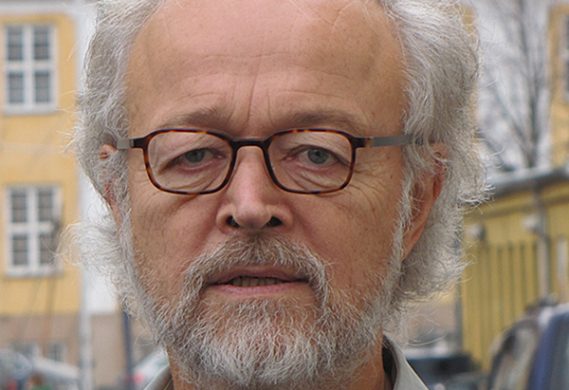Essayet fra Dansk Institut for Internationale Studier (DIIS) er et slags “Festschrift” til ære for en af Danmarks mest kendte udviklings-forskere, Ole Therkildsen, der nu er tilknyttet instituttet på Østerbro i København som emeritus.
Essay-samlingen om “The politics of development” er redigeret af forskerne Anne Mette Kjær, Lars Engberg-Pedersen og Lars Buur.
At forstå Afrika
DIIS skriver videre i omtalen:
In Africa, as elsewhere in the world, politics is decisive for change, but poorly understood, sometimes neglected and often depicted using rigid models.
The new book “Perspectives on Politics, Production and Public Administration in Africa: Essays in Honour of Ole Therkildsen” seeks to dig below the surface and do justice to the complexity of the politics of production and public administration in Africa.
With his delightful ability to take a critical look at conventional views, his passionate engagement in discussions of development, his satirical comments on Danish politics, and his modesty regarding his own work, Ole Therkildsen is a much appreciated colleague and collaborator.
The essays in the book have been written by specialists in development and African politics who have all interacted with Ole as researchers or development practitioners.
The thread running through the essays is a common concern with politics, how it should be understood and how it shapes development by covering issues related to foreign aid, local government, public administration, taxation, agriculture and political systems.
Bogen om at “Vande hvide elefanter”
Ole Therkildsen blev første gang kendt i en større kreds for den kritiske bog “Watering White Elephants”.
Siden har han været en flittig debattør, også her på Globalnyt, hvor hans indsigtsfulde og underholdende blogs er meget læste.
Direktør for DIIS, Nanna Hvidt, skriver bl.a. i forordet til essay-samlingen:
Any fool can know. The point is to understand. (Albert Einstein)
When Watering White Elephants was published in 1988 its rather candid criticism of traditional control-oriented donor support to rural water supply created quite some excitement.
The paper argued that development projects and programs should be regarded as policy experiments and that instead of detailed medium- and long-term plans donors and recipient governments should emphasize long-term strategies to guide short-term planning and implementation.
However the strategies are temporary and change with experience and power constellations among participating agencies and beneficiaries.
The paper identifies a dilemma between the donors need for results and on the other hand sustainability of projects which did not follow a more adaptive process where resources, conflicts of interests and beneficiaries were dealt with.
In the paper Therkildsen identified the readers as planners, policy makers, administrators and researchers dealing with donor involvement in rural development and it is fair to say that this audience has been a constant feature in Ole Therkildsens work.
This was obviously the case in the period when he focused and aid and knowledge which Watering White Elephants belong to, and it remained central in the period of research in local government and public administration.
“Nok forud for sin tid…”
I still remember the day in my office in the Danish Ministry for Foreign Affairs Ole Therkildsen and Odd-Helge elaborated on the outcome of their field research on taxation in Uganda and Tanzania and the intricate web of relations between the state and its citizens through different taxation mechanism.
As I remember they managed to capture our attention, because the long-term vision was one of understanding how countries can generate own resources in an equitable and fair way and maybe over a longer period of time with economic growth reduce their dependency on aid.
Perhaps the two researchers sitting in my office in the 90’ies were a bit ahead of their time and none of us administrators grasped the importance of the issue or perhaps more rightly knew what to do about it.
However, today taxation is back on the agenda both with regards to illicit illegal financial flows and to proper taxation with regards to natural resource exploitation.
(slut)
Download Perspectives on Politics, Production and Public Administration in Africa: Essays in Honour of Ole Therkildsen (PDF, 138 sider)















